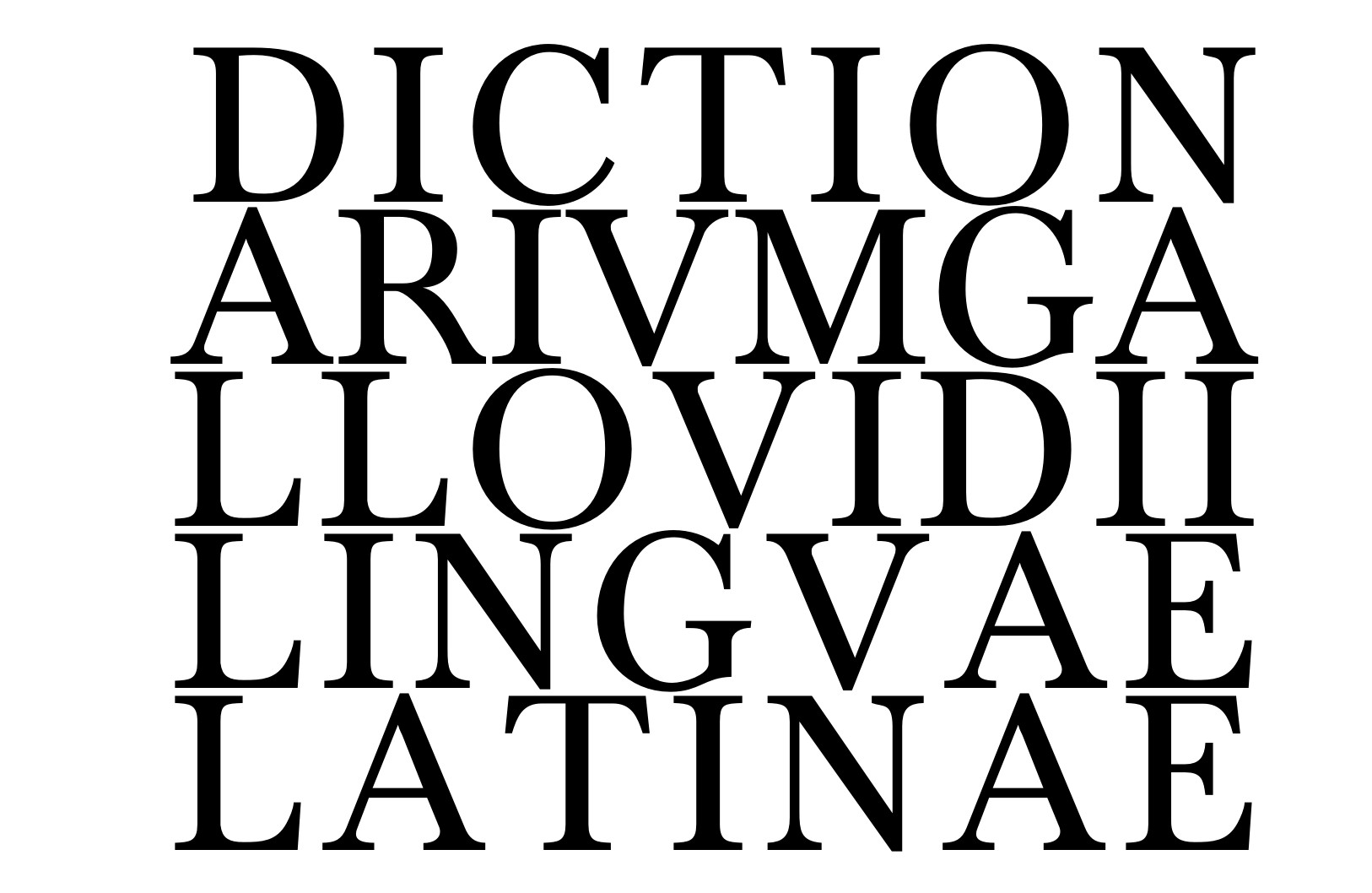Dictionarium Gallovidii gets its own repository

2020-01-30 19:35:36 -0800
As Capiar starts to evolve into an actually useful collection of LaTeX classes and macro packages, it feels like the right time to clean up the project tree somewhat by giving the Dictionarium Gallovidii, a Latin-English dictionary which heavily leverages Capiar and serves as a reference as I learn the Latin language, its own repository and development blog.
Owing to the increasing size of the dictionary, it is prudent to start thinking of it as a standalone project in its own right. To reflect the role played by the class and macro package in authoring the document, the linguistics class and package will be renamed dictionarium. This won’t be confusing at all because I just said so. Expect other class and package names from Capiar to change depending on name conflicts on CTAN.
Considering how utterly useful this reference document has been as a learning aid for Latin, I am starting a skeleton project based on Dictionarium to aid my efforts in learning the Japanese language, tentatively called Jisho. Don’t expect much work to be done on this new document until the Latin work starts to wrap up.
The next steps for Dictionarium, such as completing the content entry from primary sources and the identification of secondary sources and stylistic cues, will be found soon on the Dictionarium’s development blog (once I figure that out, anyway).
Happy Holidays

2019-12-25 14:15:16 -0800
Lupus et Agnus
2019-12-14 14:40:37 -0800
This is my first translation post, not a particularly lofty effort, but hopefully one amusing enough. Find below the well-known Fable by Aesop, adapted into Latin by Phaedrus, Lupus et Agnus, or in English, The Wolf and the Lamb.
| Latin | English |
|---|---|
| Ad rīvum eundem lupus et āgnus vēnerant, | Driven by thirst, the wolf and lamb came to |
| sitī compulsī. Superior stābat lupus, | the same river. Upriver stood the wolf, and some distance |
| longēque īnferior āgnus. Tunc fauce improbā | away, downriver stood the lamb. By his wicked tongue, |
| latrō incitātus iūrgiī causam intulit; | the provocative brigand brought forth cause for quarrel; |
| “Cur” inquit “turbulentam fēcistī mihi | “Why,” he asks “have you so muddied my |
| aquam bibentī?” Lāniger, contrā timēns | drinking water?” Fearfully, the woolen one countered |
| “Quī possum, quaesō, facere quod quereris, lupe? | “How can I, pray tell, cause that which you lament, wolf? |
| Ā tē dēcurrit ad meōs haustūs liquor.” | The water flows past you to where I am drinking.” |
| Repulsus ille vēritātis vīribus | Taken aback by the force of the facts, the wolf declared: |
| “Ante hōs sex mēnsēs male” ait “dīxistī mihi.” | “Six months ago, you spoke ill of me.” |
| Respondit āgnus “Equidem nātus nōn eram.” | “Indeed,” the lamb responded, “I had not yet been born.” |
| “Pater hercle tuus” ille inquit “maledīxit mihi;” | “By Jove, your father, then,” searched the wolf “spoke ill of me;” |
| atque ita correptum lacerat iniūstā nece. | and thus the lamb was seized, torn asunder, unjustly slaughtered. |
| Haec propter illōs scrīpta est hominēs fābula | This fable was penned to address those men |
| quī fīctīs causīs innocentēs opprimunt. | who by fallacious justification tread upon the innocent. |
A Declassified CIA Article on the Assassination of Reinhard Heidrich
2019-12-09 18:17:45 -0800
Declassified in 1993, and written in 1960, this article, taken from CIA periodical Studies in Intelligence, recounts in gripping detail the preparations, execution, aftermath, and the subsequent descent into (temporary) obscurity of the Reinhard Heydrich assassination carried out in 1942 during WWII.
While the story is possibly somewhat dramatised, and is also wrought with errors, particularly regarding the dates surrounding specific events of the operation, its lacking credibility is made up for by its straight-forward style and for being an attempt at an omnipotent narrative of a truly epic and harrowing episode in recent history.
Worth the read, the article is not long and will at the very least amuse intelligence buffs and historians alike. It is thus the first of hopefully many good reads to come.